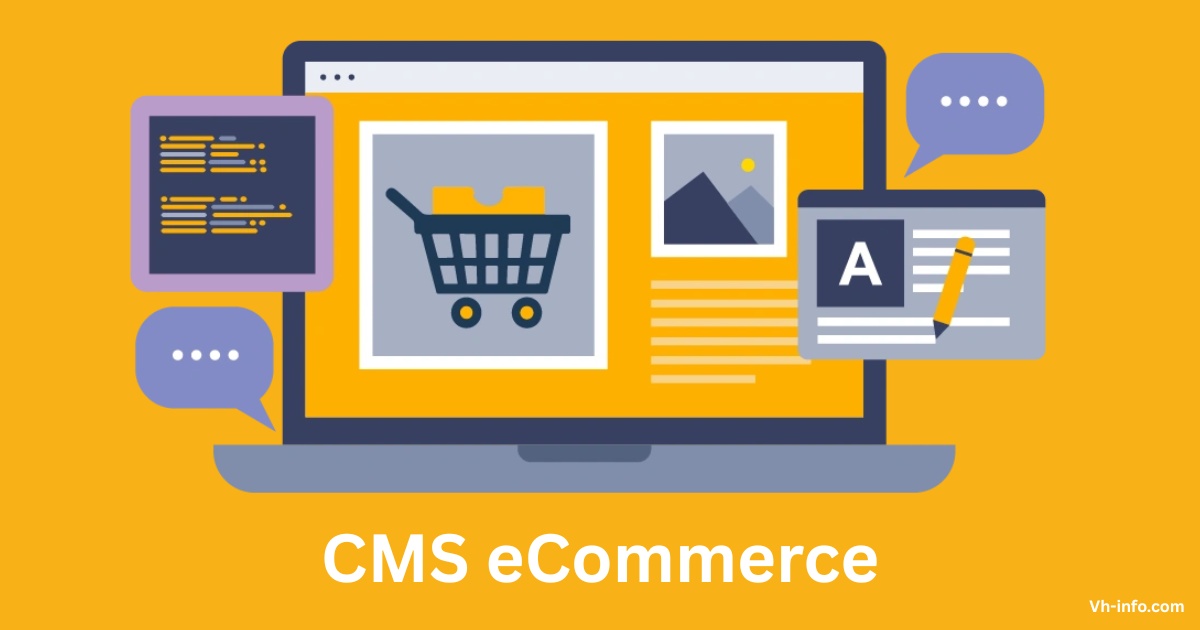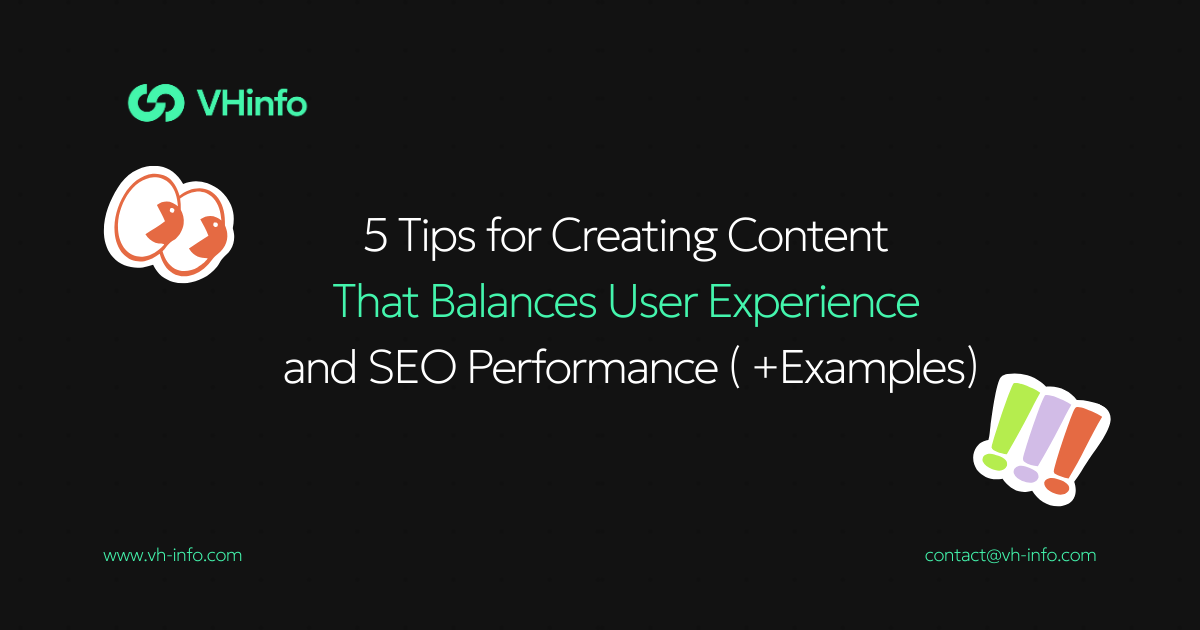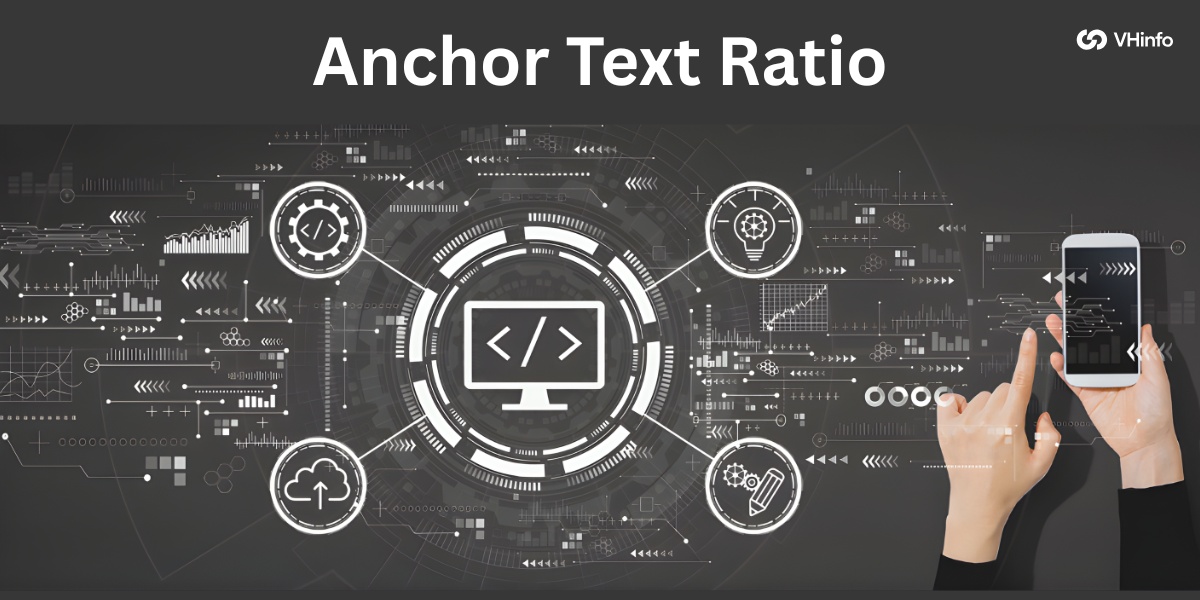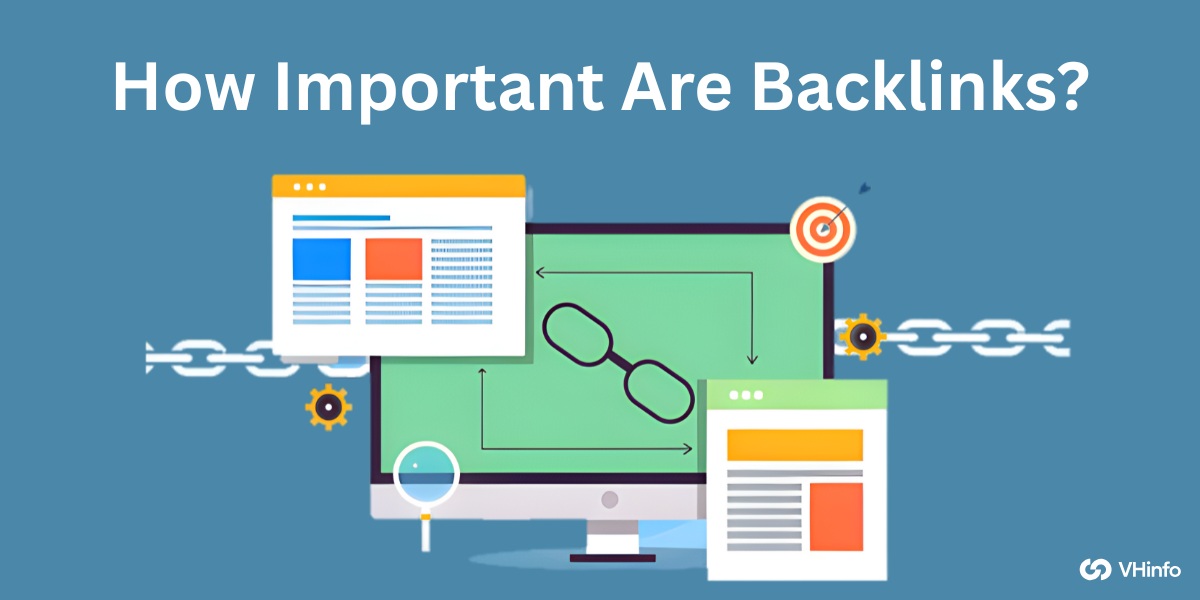The rise in online shopping has made it key to pick the right tools for businesses.
A CMS, or Content Management System, for ecommerce is like a control center. It helps you manage your store’s products, content, and customer service all in one spot.
Whether you run a small shop or a big company, a good CMS platform is easy to use. It also has strong features like SEO tools, inventory control, and payment methods to keep things running well.
At VH-info, we have seen how the right CMS can change store management. It offers growth for many products and options to customize your brand. You can also connect with social media and sales channels easily. Our work with SaaS businesses shows that having tech support with easy-to-use designs is key. This helps boost traffic and sales naturally.
Let’s look at how modern CMS options make running an e-commerce site easier while keeping customers satisfied and coming back.
What Is A CMS Ecommerce?
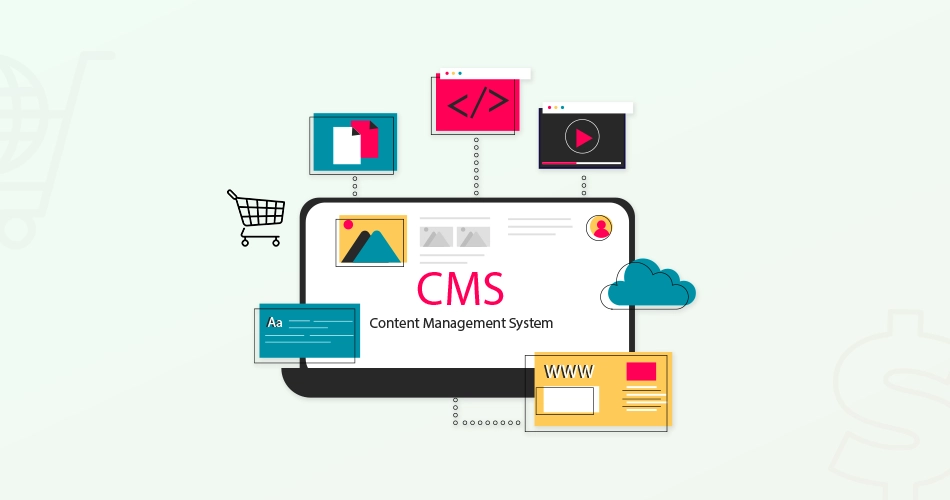
A CMS e-commerce system combines content management with e-commerce tools.
This creates a single place to manage website content and online store tasks. These systems help businesses create, edit, and share content easily. They also handle product management, payments, and customer help all in one spot.
E-commerce CMSs have special features for online shopping.
These include a shopping cart, payment gateways, inventory tracking, and order processing. This setup ensures smooth experiences for customers. They take care of everything from product listings to sales processing and customer data.
Modern e-commerce CMS platforms come in two types: traditional and headless. Traditional systems are all-in-one solutions with built-in tools. Headless platforms give more freedom for businesses that need custom options.
Benefits Of Using A CMS For Ecommerce

Implementing a CMS ecommerce solution has many perks for online shops.
It helps to make work easier and improve customer service. A content management system saves time on making content and managing the store. This allows owners to focus on ways to grow their business instead of worrying about tech details.
Security is another key benefit of professional CMS platforms. These systems come with built-in protection against common threats. They also manage access for different user roles.
This security keeps sensitive customer data and payment info safe during shopping and transactions.
Cost-effectiveness is a big advantage, especially for small business owners. They can get strong features without spending too much money on development. Many ecommerce CMS open-source solutions offer advanced functions at low costs.
Meanwhile, SaaS ecommerce platforms provide set prices each month that cover hosting, support, and updates.
The scalability of modern CMS ecommerce platforms lets businesses grow easily.
They can start with a few products and later manage many items across various sales channels. This flexible platform means your online store can change as your business needs change without needing major upgrades or rebuilds.
Key Features to Look For in an E-commerce CMS
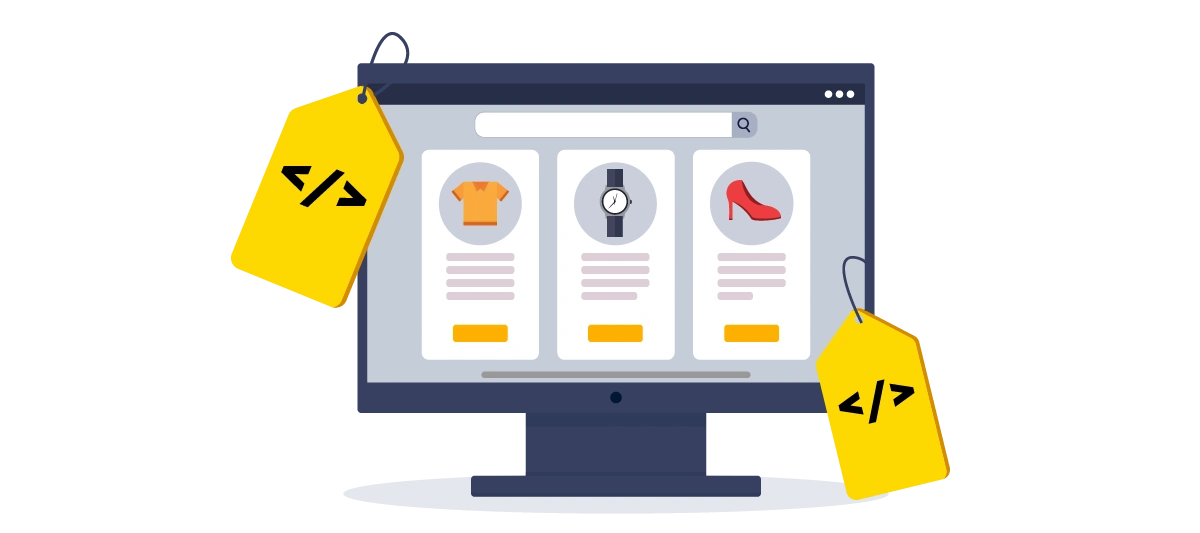
User-Friendly Interface
A simple design is key for good CMS eCommerce management. It helps your team work better and faster.
A good content management system lets users with little tech skill do tasks easily. They can create content, manage products, and process orders without much training. Today’s eCommerce platforms aim to be easy to use.
They have clear dashboards that show important info clearly. These designs should allow quick access to stock control, customer help, and marketing tools. They must also provide easy navigation for smooth workflows.
SEO-Friendly Tools
Built-in SEO tools are very important for getting free traffic to your e-commerce site.
They help customers find your products through search engines. The best e-commerce CMS platforms have features for improving product pages. They also help manage metadata and create easy-to-read URLs. Plus, these platforms have content marketing tools.
These tools let you make blog posts, landing pages, and ads that improve your SEO plan. These tools must work well with your product management system. This helps create strong content that increases traffic and sales.
Content Organization
Effective content organization helps to manage product lists, blogs, and marketing tools easily. It does this by using clear categories. Your eCommerce CMS must have flexible tags and data options.
This will help customers find what they need and manage things inside the site. Smart features like automatic sorting, bulk changes, and setting up content in advance make marketing easier. These tools are very important as your online store grows.
Scalability
A good eCommerce solution needs to grow with your business.
It should support more products, customers, and sales without slowing down. The CMS platform must manage unlimited products efficiently. It should also provide fast loading times and safe transactions.
Cloud hosting helps by adjusting server resources as needed. This means it can handle more traffic during busy times. It also keeps costs low when there are fewer visitors. This way, customers always have a good experience.
12 Best CMS Ecommerce Platforms For 2025
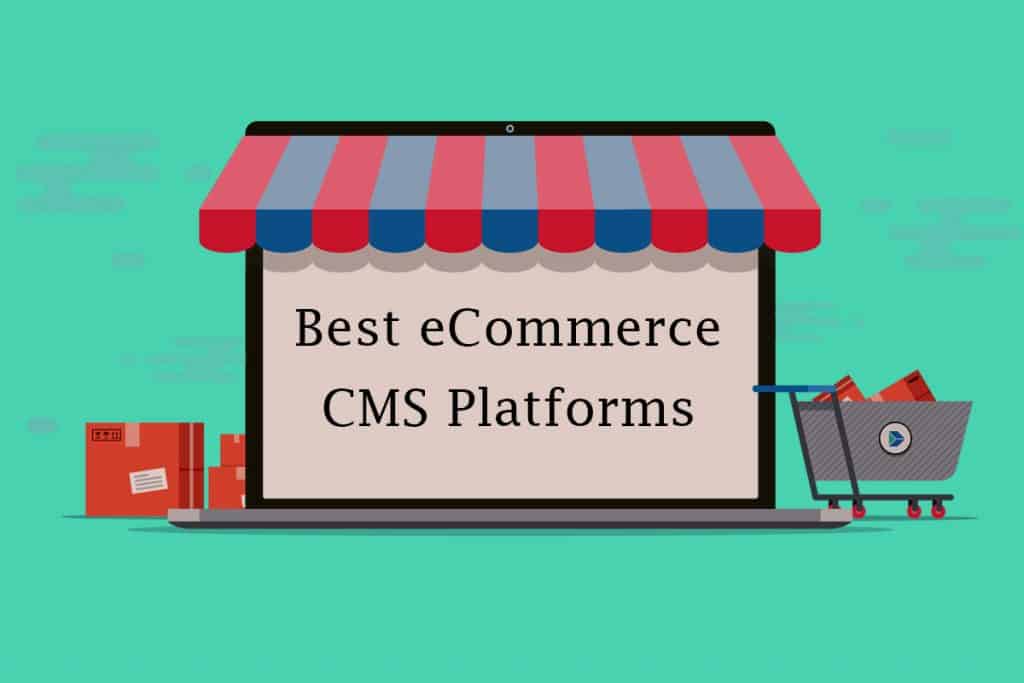
Shopify

Shopify leads the SaaS ecommerce market with its comprehensive platform that combines ease of use with powerful features for businesses of all sizes. The platform handles everything from website development to payment processing, offering a complete ecommerce solution that requires minimal technical expertise to implement and maintain.
With over $1 trillion in cumulative sales processed through the platform, Shopify demonstrates proven scalability and reliability for online businesses. The platform’s extensive app ecosystem provides access to specialized marketing tools, inventory management solutions, and advanced features that can be added as business needs evolve.
Adobe Commerce (Formerly Magento)
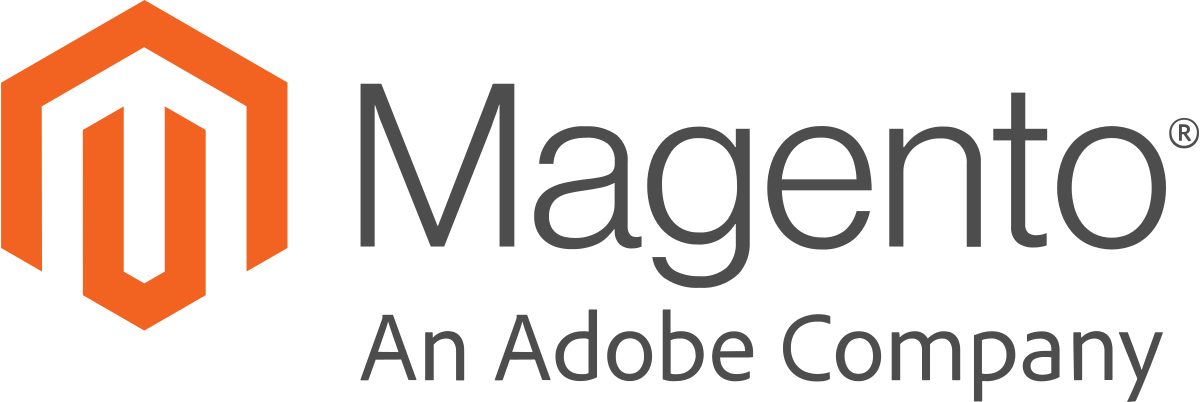
Adobe Commerce represents the enterprise-level evolution of the popular Magento platform, offering extensive customization options for large-scale ecommerce operations. The platform provides both cloud-hosted and on-premises deployment options, giving businesses full control over their hosting environment and technical implementation.
The Magento open source version remains available for businesses requiring open source ecommerce solutions with complete customization freedom. This dual approach allows companies to choose between managed services and self-hosted implementations based on their technical skills and business requirements.
BigCommerce

BigCommerce specializes in headless CMS capabilities that enable advanced website development scenarios while maintaining user-friendly management interfaces. The platform’s API-first architecture supports integration with various content management systems and custom frontend implementations.
The platform’s built-in features include comprehensive payment gateways integration, social media selling tools, and multi-channel selling capabilities that expand your online presence across various sales channels.
These features eliminate the need for numerous third-party integrations while maintaining professional functionality.
WordPress

WordPress combined with WooCommerce creates a powerful open-source ecommerce platform that uses the world’s most popular content management system. This combination provides exceptional content marketing capabilities alongside robust e-commerce functionality, making it ideal for businesses prioritizing content-driven marketing strategies.
The extensive WordPress ecosystem offers thousands of plugins and themes that extend ecommerce features and customization options. The active community provides ongoing technical support and development resources, though successful implementation may require some technical knowledge for optimal results.
Wix eCommerce
Wix provides an accessible website builder approach to CMS ecommerce that enables small business owners to create professional online stores without technical expertise.
The platform’s drag-and-drop interface simplifies website development while including essential ecommerce features like shopping cart functionality and payment processing.
The CMS capabilities within Wix allow dynamic product displays across different pages, enabling creative presentation of your product catalog. This flexibility supports unique branding approaches while maintaining the ease of use that makes Wix popular among non-technical users.
HubSpot

HubSpot’s ecommerce CMS integration combines content management with comprehensive customer relationship management tools.
The platform’s Commerce Hub provides lightweight e-commerce functionality that integrates seamlessly with HubSpot’s marketing and sales automation tools. This integration enables sophisticated customer behavior tracking and personalized marketing campaigns based on shopping cart activity and purchase history.
The platform particularly benefits B2B businesses requiring complex sales processes and detailed customer analytics.
PrestaShop
PrestaShop offers a dedicated open-source e-commerce solution designed specifically for online store creation and management.
The platform provides comprehensive e-commerce functionality out of the box, including advanced inventory management, multiple payment providers integration, and multi-language support for international operations.
The modular architecture enables extensive customization through thousands of available modules and themes.
PrestaShop’s focus on ecommerce-specific features makes it an excellent choice for businesses requiring specialized store management capabilities without the complexity of general-purpose CMS platforms.
OpenCart

OpenCart delivers a complete ecommerce CMS package that includes professional installation and premium extensions for comprehensive store functionality.
The platform’s marketplace approach provides access to specialized features like multi-vendor capabilities, bulk product management, and advanced shipping options.
The solution includes 18 premium extensions covering essential ecommerce features from SMS notifications to abandoned cart recovery. This comprehensive package approach reduces the complexity of building a fully functional online store while providing professional technical support.
Volusion

Volusion provides an established ecommerce platform with powerful marketing tools and analytics capabilities for comprehensive store management. The platform combines website builder functionality with advanced ecommerce features, though the interface requires some learning curve for optimal utilization.
The platform’s strength lies in its comprehensive analytics and marketing automation features that help businesses understand customer behavior and optimize their online presence.
However, the technical complexity may require additional technical expertise compared to more user-friendly alternatives.
Drupal Commerce

Drupal Commerce represents a sophisticated open-source e-commerce solution built on the Drupal content management system.
This platform excels in scenarios requiring complex content relationships and advanced customization capabilities that exceed typical e-commerce platform limitations. With over 42,000 active installations, Drupal Commerce serves major brands requiring enterprise-level functionality with complete customization freedom.
The platform’s modular architecture supports extensive feature additions through its large community of developers and contributors.
Joomla

Joomla’s CMS ecommerce integration provides a flexible foundation for businesses requiring custom ecommerce implementations. The platform’s nine levels of administrative privileges enable detailed workflow customization, while version controls ensure content safety during updates and modifications.
The Joomla ecosystem supports various ecommerce extensions that add shopping cart functionality, payment gateways integration, and inventory management capabilities.
This modular approach allows businesses to build customized solutions that match their specific operational requirements.
Sitecore

Sitecore represents an enterprise-class CMS platform that integrates seamlessly with specialized ecommerce solutions like Ucommerce.
This combination provides sophisticated content management capabilities alongside robust ecommerce functionality for large-scale operations. The platform’s strength lies in its comprehensive customer experience management tools that enable personalized content delivery and advanced analytics.
This enterprise focus makes Sitecore ideal for large organizations requiring sophisticated content and commerce integration.
How To Use An eCommerce CMS?

Starting a cms ecommerce system needs careful planning. First, think about your content and how to organize products. Set up your store basics next. This includes payment methods, shipping choices, and tax settings that fit your business and customers.
Next, create content. This should cover product details, category pages, and other helpful content to improve customer experience. Modern CMS platforms offer templates and step-by-step guides to make this easier.
They also help keep your site looking the same throughout. You also need to do regular tasks for your online store. This includes updating inventory, improving content for search engines, and checking customer behavior with built-in tools.
These tasks help your online store work well as it changes with the market and customer needs.
How To Choose The Right CMS For Your Ecommerce Business?
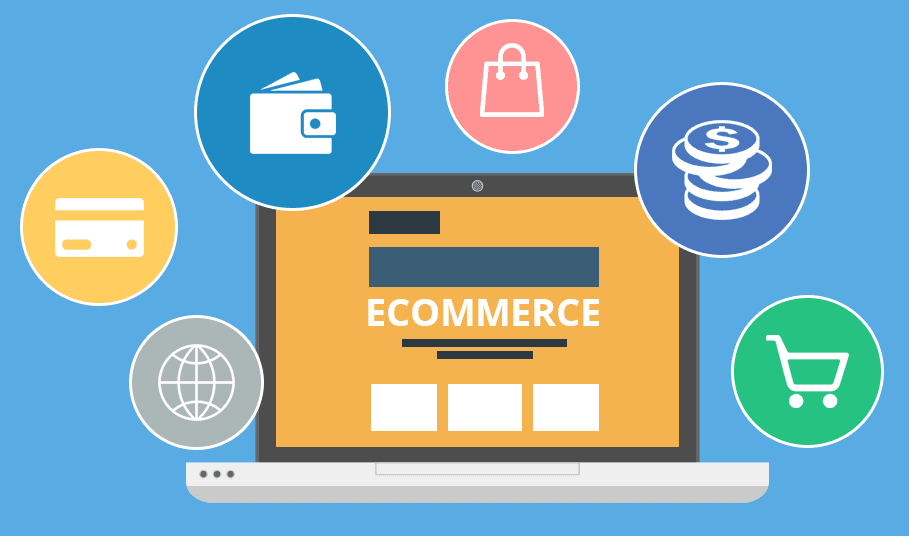
Selecting the right CMS ecommerce platform needs careful thought. You must look at your business needs and your tech skills.
Also, think about your future growth plans. Decide if you want open source flexibility or the easy use of SaaS ecommerce options. SaaS solutions come with technical help and hosting services. Keep in mind your budget.
This should cover not just the first costs but also ongoing expenses. These include transaction fees, extra apps, and tech support needs. Some platforms have many features but cost more money. Others are basic and charge extra for advanced features.
The tech skills available in your team also affect which platform you choose. Easy-to-use platforms may cost more but need less tech know-how. Open source options allow for more custom changes but can be harder to manage. It is good to check how platforms support content marketing, too. Strong content management helps with SEO success and keeps customers engaged over time.
The best CMS for your e-commerce site should fit well with your content plans and link-building goals.
Best Practices For Optimizing Your Ecommerce CMS

Optimize Header Tags
Optimizing header tags in your CMS helps improve user experience. It also boosts search engine visibility. Use clear heading orders to guide customers. This approach supports your SEO goals too.
Your e-commerce CMS should have easy tools for managing header tags. These tools allow quick changes without needing tech skills. They ensure your headers are applied the same way on all pages and product lists.
User-Friendly Interface For Easy Content Creation
A simple content creation tool helps your team manage marketing needs well. Regular training on CMS tools makes them more useful.
This also improves how much work gets done. Having quality checks helps keep things the same on your e-commerce site. This is important as your team grows and more people help with content management.
Content Organization and Categorization With Tags and Metadata
Organizing content with tags and information helps customers find what they want. It also makes things run better inside the site.
Your CMS should allow easy grouping to match your products and sales plan. You should check and improve this system often. This way, it will meet customer needs as your product list grows.
Keeping it updated ensures a good user experience. It also allows for features like special suggestions and improved search tools.
FAQ’s:
What is the Fastest CMS For e-commerce?
Platform speed relies on many factors. These include the quality of hosting, how content is set up, and the tech used. SaaS ecommerce platforms usually offer faster speeds right away. This is because they have better hosting setups.
On the other hand, open source solutions need careful work to reach good speeds.
How Do I Choose an e-commerce CMS?
You should pick a platform based on your skills with tech and your budget. Think about how much you can grow in the future.
Also, think about what your business needs. Look at how easy it is to use each option. Check the features that come with each one. Make sure there is good support for issues you may face. Lastly, see how well they can work with your current tools.
Which CMS Is Widely Used For E-Commerce Websites?
Shopify is the top player in the SaaS ecommerce market. WordPress with WooCommerce is best in the open-source area. Adobe Commerce is for large businesses. Other platforms like BigCommerce and PrestaShop help special markets.
Do I Need A CMS For an E-Commerce Website?
A CMS ecommerce system makes store management much easier. It helps with content creation and ongoing tasks. You can build a store without one, but it is hard. CMS platforms give you key tools to save time. They also make things less complicated.
What Criteria Should I Consider When Choosing an E-Commerce Platform For My Business?
When choosing a CMS eCommerce platform, think about ease of use. Look at how well it can grow with your needs. Check the costs and what features are offered. It is also important to look at the help you can get. Think about how much you can change or customize the site.
Lastly, see how well it works with other tools. Keep your future plans in mind. Make sure the platform can grow with your business needs.
Conclusion
Selecting the right CMS ecommerce platform is an important choice. It can affect your online store’s success and customer experience. This choice also impacts how well you run your business. The best CMS for your business depends on many things.
These include your tech skills, budget, and growth needs. You should also think about what your business specifically requires.
You can choose open source options or SaaS platforms. Make sure your chosen system helps with current tasks and future plans.
VH-info helps SaaS businesses improve their online presence. They provide help with content management and link-building strategies. The right CMS is key for successful marketing efforts. It can boost organic traffic and help your business grow steadily. Take time to look at all your options closely. Think about both current needs and long-term goals to make the best choice for ecommerce success.
